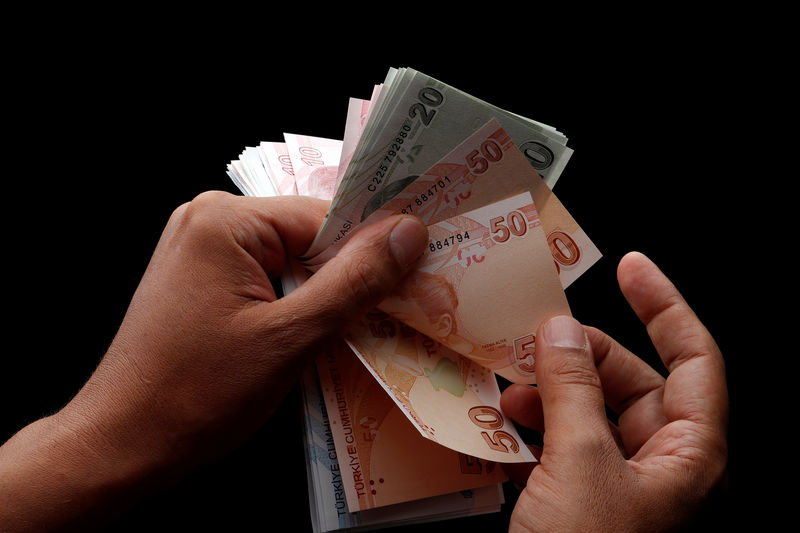US LNG exports surge but will buyers in China turn up?
(Bloomberg) -- The Turkish lira slipped to an almost eight-month low against the dollar, nearing yet another key level that state banks have been defending as pressure on the currency mounts.
The lira weakened as much as 0.6% to 6.0499 per dollar in Istanbul. Last week, government-backed lenders sold more than $4 billion of foreign currency, arresting the lira’s slide and holding it stronger than the 6.05 per-dollar-mark.
Tuesday’s losses came even as authorities tightened restrictions on foreign access to the currency this week, making it more difficult for them to borrow the lira and bet against it. Government-backed lenders have sold around $500 million this week, according to three traders with knowledge of the matter.
The measures are the latest example of an increasingly interventionist approach to policymaking that investors say is keeping the currency artificially strong despite an aggressive easing cycle and growing geopolitical risks.
This week, Turkish President Recep Tayyip Erdogan put NATO’s second-largest army on a collision course with forces loyal to Syrian President Bashar al-Assad to prevent the fall of Idlib province.
Until now, the lira had largely bucked a rout spreading across emerging markets.
But five rounds of interest-rate cuts and three months of accelerating inflation have driven Turkey’s real rate below zero, which makes holding the lira unattractive for many investors.
“The Turkish authorities have kept a tight grip on the lira in recent weeks, but we don’t think that this can continue for much longer,” said Jason Tuvey, a senior emerging-market economist at Capital Economics, who expects the lira to weaken 20% to 7.5 per dollar thorough year-end.
“The longer that policy makers intervene to prop up the lira, the greater the risk of a disorderly adjustment,” he said.
